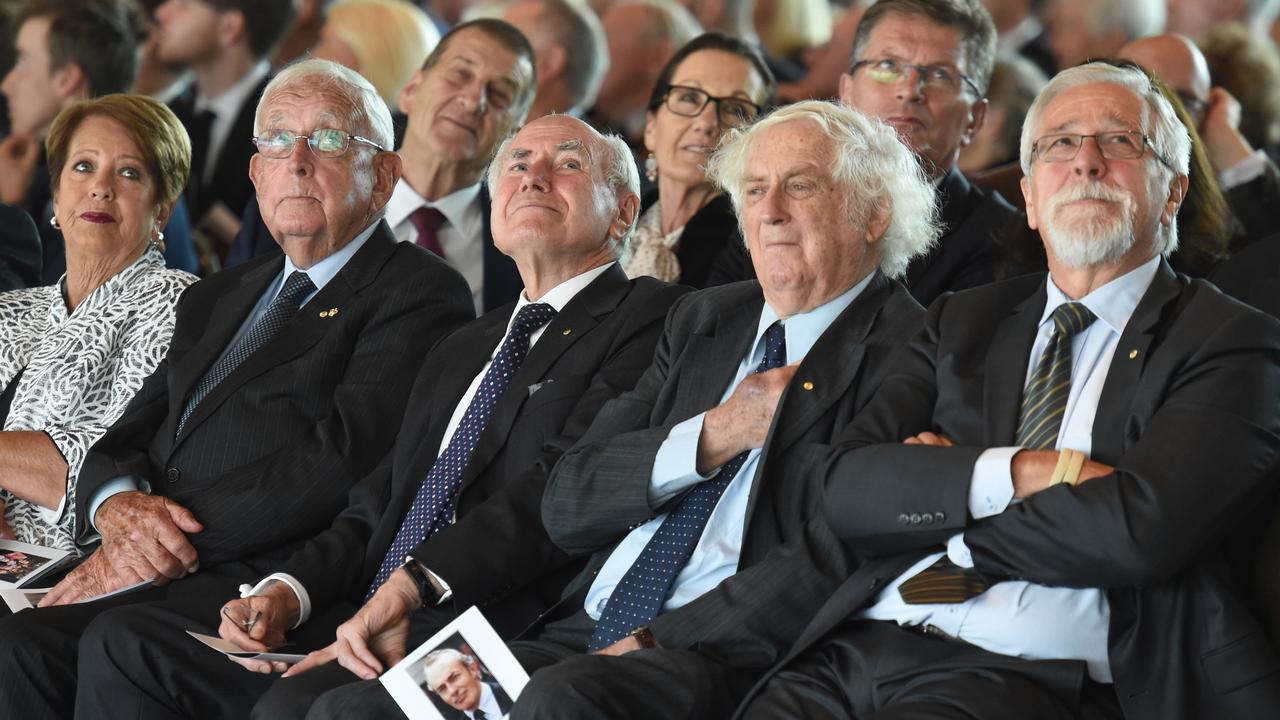David Flint lashes Press Council ruling as naive and impractical
FORMER Australian Press Council chairman David Flint believes the organisation has created a naive and impractical rule.
FORMER Australian Press Council chairman David Flint believes the organisation now led by Julian Disney has created a naive and impractical rule that will encourage media intrusion on grieving families.
The new requirements, which affect all members of the Press Council, have been outlined in a ruling that criticises The Sydney Morning Herald for reporting the funeral of a murder victim without seeking permission.
“In general, publications should check directly with the family or funeral director whether they can attend a funeral, publish images of it or quote material from the ceremony,” it says.
This has triggered a furious response from lawyers and editors who fear the council under Professor Disney has become fixated on restricting press freedom.
“Can you imagine getting permission from the families of bikies, criminals, celebrities, politicians — even victims of natural disasters/plane crashes? Should the media just accept they won’t be covered because the family says so?” asked Clive Mathieson, editor of The Australian.
Professor Flint, who chaired the council for 10 years, said he disagreed with the finding that the funeral of Kate Malonyay was not of sufficient importance in the public interest to justify coverage without the consent of the family.
Professor Flint and media lawyer Justin Quill warned that this approach would have the perverse effect of encouraging media intrusions on grieving families.
It meant the media was on notice that it needed permission to cover funerals instead of applying the current approach of covering funerals from a distance without contacting grieving families.
Failure to gain permission would put publications at risk of an adverse ruling unless they could bring themselves within a “public interest” exception that had been denied to the Herald.
APC executive director John Pender sought to play down the risk to media freedom by saying the adjudication meant funeral directors could also give permission for press coverage.
Press coverage in “indisputably public places such as streets may well not require consent in the absence of special circumstances”, Mr Pender said.
The likely impact of the ruling on other publications was conceded by Mr Pender but he said it was consistent with the organisation’s general principles and the approach taken by the council towards intrusions on grief, including at funerals.
When asked for another example of this approach by the council, he issued a second statement that says the ruling against the Herald is “consistent with the approach taken by the council and previous executive directors over the years”.
Professor Flint said there was a public interest in the Herald’s reporting of the funeral and he would never have used the council’s privacy standard in the way it had been used in this instance.
Mr Quill, a principal at Kelly Hazel Quill, said the APC was overreaching and its privacy standard had been “twisted and misapplied” in the latest ruling.
The Australian’s deputy editor, Peter Fray, a former SMH editor-in-chief and publisher, said the council appeared hell bent on restricting freedom of the press.
Fray, a former Fairfax representative on the council, said its current activist agenda appeared at odds with its desire to be a fair, reasonable and respected media watchdog.
“The media may well be an imperfect beast, but it does not need a chief censor, as much as Julian Disney may think otherwise,” he said.
Darren Goodsir, the Herald’s editor-in-chief, did not return The Australian’s calls.



